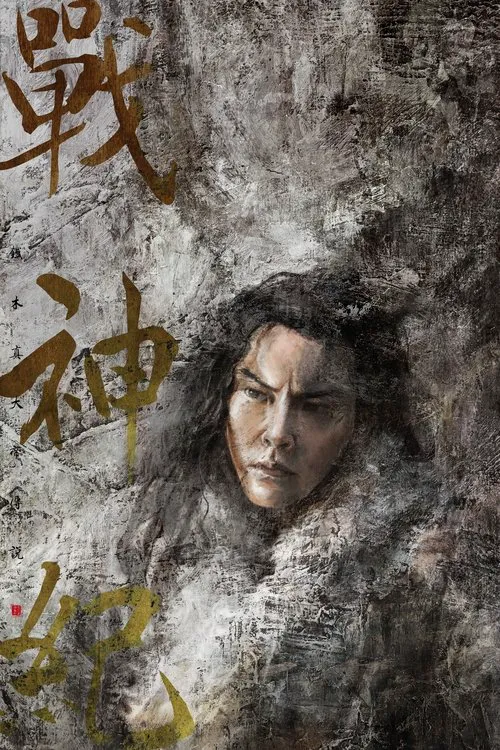Genghis Khan

Plot
Genghis Khan, a 2004 film directed by Brett Leonard, serves as a historical epic that reimagines the life story of Temüjin, also known as Genghis Khan, the founder of the Mongol Empire. The screenplay written by Steven P. Ramsey provides a dramatic narrative, focusing on key events that led to Temüjin's rise as the unyielding conqueror of the 13th century. The film begins with a depiction of Temüjin's childhood, played by Stephen Hunter. As a young boy, Temüjin shares a deep connection with his childhood love, Börte, portrayed by Bey Logan, a fellow tribesman's daughter. Their love for one another is clear, and the audience witnesses the affection they have for each other during scenes of playfulness and vulnerability. However, their happiness is short-lived. Upon hearing the news of Temüjin's father, Yesugei, being poisoned by a rival clan, their idyllic world is turned upside down. Temüjin feels an overwhelming sense of loss, not to mention his desire for revenge against those responsible for his father's death. The death of Yesugei forces Temüjin to come to terms with his new reality and the uncertainty that lies ahead. As the storyline unfolds, Toghrul Khan, a tribal leader who was close to Yesugei's clan, learns of Temüjin's father's death. He sees an opportunity to capture Temüjin and make a profit from the valuable resources Yesugei's tribe possessed. This is achieved by attacking Temüjin's tribe and separating him from his people. Toghrul's treachery leads to devastating consequences, leaving Temüjin alone and without protection. His tribe, once a close-knit community that provided shelter and support, is now nothing more than a memory. As Temüjin sets out to search for his wife, he finds himself on an arduous journey of survival and self-discovery. Throughout Temüjin's perilous quest, he faces harsh realities and unimaginable hardships. The harsh climate of the Mongolian steppes, a grueling existence that forces him to adapt to his new circumstances, and a series of brutal encounters with hostile tribes make it increasingly difficult for Temüjin to survive. One such encounter takes place when Temüjin meets Jamukha, played by Sun Li, the son of a powerful tribe who has also experienced loss and hardship in his past. Their meeting leads to a fierce confrontation and ultimately results in an unusual friendship, forged from a deep understanding of one another's pain and resilience. Jamukha becomes a significant companion in Temüjin's journey, serving as a reminder that even in the darkest of times, human connection can transcend even the most daunting of circumstances. Temüjin's quest to reunite with Börte not only drives the plot forward but serves as a reflection of his emotional journey. Through his arduous travels, Temüjin gradually comes to realize that his love for Börte has become an inspiration for him. The resilience of their young love is what keeps him going, and in the midst of turmoil, it helps him stay focused on rebuilding his life and reclaiming his rightful place as a leader among the tribes. Meanwhile, Toghrul Khan, Temüjin's nemesis, finds himself trapped in a web of deceit and greed. His actions have far-reaching consequences, and the seeds of chaos he sows begin to bear fruit, affecting the people around him, including some of his own tribe members. As the narrative unfolds, Temüjin's character undergoes significant transformation. From a broken-hearted young man fighting to survive, he evolves into an unyielding conqueror with a fierce ambition to reclaim his people's lost honor. Driven by his unrelenting quest for justice, Temüjin slowly starts to rebuild his tribe with the support of Jamukha and his fellow survivors. The film's climax is marked by an intense confrontation between Temüjin and Toghrul. The confrontation takes a dark turn as the ruthless tactics of Toghrul are matched only by Temüjin's unwavering resolve to reclaim what is rightfully his. Genghis Khan's story comes full circle, as Temüjin's relentless pursuit for justice eventually leads him to reclaim what had been taken from him. The film concludes with Temüjin having risen to the heights of becoming a legendary conqueror, and a vision unfolds of a vast empire stretching across a unified Mongolian landscape, symbolizing the birth of the Mongol Empire. The film raises significant questions about Temüjin's actions, inviting viewers to consider whether the pursuit of justice, even through extreme means, justifies the consequences of such a path. Genghis Khan, through Temüjin's story, serves not only as a historical epic but a commentary on the power dynamics at play in society and the human condition, where resilience, love, and ambition can either be our strength or weakness.
Reviews
Recommendations



